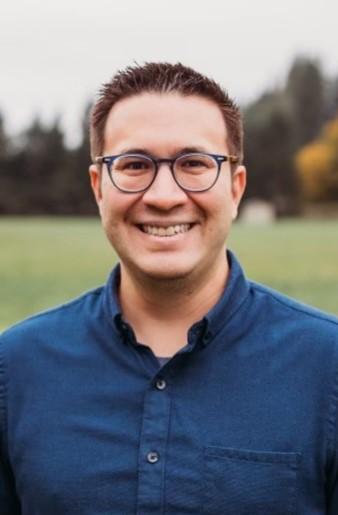Nicholas Vann
Director of Equity & Belonging
he/him/his
What do you love to do outside of the Office of Equity?
"I really love traveling to eat, particularly with my wife and my two young children. Food is such a great reflection of the people who have created it, and I love learning and experiencing the world as if it were an endless culinary adventure. I feel the same way about place. I love seeing all the beauty - both natural and built - that the world has to offer."
What do you contribute to the Office of Equity?
"My background in architecture, cultural heritage, and historic preservation have led me to where I am now. I believe that people are intrinsically tied to place, and our ability to acknowledge, enhance, build, rebuild, and evolve our physical communities is inherent in identifying who we are. Everyone deserves to feel a sense of belonging where they are, whether they’ve been there for 5 minutes or 5 generations.
I grew up unaware of my own family’s lived experiences and the government systems that were intentionally created to exclude us. My grandfather immigrated as a paper son from China when we was 8. He worked nearly every day of his life. My grandmother worked alongside him and was a legacy woman of color who helped Historic Route 66 prosper after immigrating as a War Bride. I am the son, grandson, and great grandson of immigrants and veterans. I am mixed race, and have always lived in two separate worlds simultaneously."
“Injustice anywhere is a threat to justice everywhere.” - Martin Luther King Jr.
Why are you in this role?
"I believe that every Washingtonian deserves the dignity of feeling a sense of belonging - particularly in place - regardless of their identity. I believe that the way we wish to embed values of shared power into government operations is the way government should have been operating the whole time. We must create a continuous feedback loop, co-create and envision a future where everyone can thrive and belong, and we must do this WITH all those we serve, and not to them. By centering the voice of those who have been historically underserved, overlooked, and marginalized, we can ensure every Washingtonian has a say in how their government operates and serves them.
We must also understand and confront the full story of our state and country’s history. We must tell history from the perspective of multiple people who lived through it, as there is no singular viewpoint on historical events, trends, or even figures. We must reconcile. We must confront. And we must deconstruct and reconstruct government policies and programs that have caused harm in order to allow everyone to flourish."

